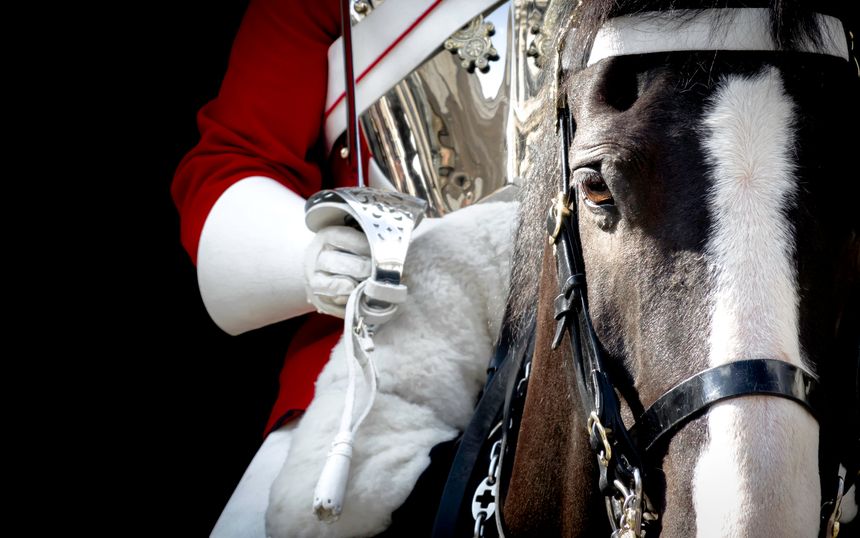The recent High Court decision in O’Connell v Ministry of Defence [2025] EWHC 2301 (KB) is one that deserves the attention of both personal injury lawyers and medico-legal experts alike.
Not only does it involve the Animals Act 1971, but it also delivers a clear reminder of how expert evidence can influence findings of fundamental dishonesty. The judgment - particularly paragraphs 118 to 130 - provides valuable insight into how the court assesses expert contributions when honesty is in question.
The background
The claimant, a gunner in the Royal Horse Artillery, brought claims in both negligence and under the Animals Act 1971 after being thrown from a horse during the course of her employment. She sustained a serious injury to her left shoulder, specifically a significantly displaced clavicle fracture, which required open reduction and internal fixation.
Despite surgical success, she continued to report severe pain, numbness, and restricted movement, ultimately claiming substantial damages for ongoing disability. Her case included assertions of being fit for part-time work only, a need for care and assistance, and even the cost of an automatic vehicle due to her alleged inability to use her left arm.
The defendant’s case and surveillance evidence
The defence challenged the extent of the claimant’s reported limitations.
Pain expert Dr McDowell observed that neither he nor the orthopaedic surgeons could identify a clinical explanation for her ongoing symptoms. Importantly, he noted an absence of muscle wasting, which would have been expected if the claimant truly avoided using her arm.
In light of these inconsistencies, the defendant obtained surveillance footage. The claimant was seen using her left arm freely and driving a manual car, contradicting her earlier claims. Further evidence revealed that she had attempted to mislead the court, including presenting false witness evidence and concealing the replacement of her car.
Expert evidence - speaking (or staying silent) matters
All medical experts were invited to comment on the surveillance footage.
- The defendant’s orthopaedic expert, Mr Smith, concluded that the footage showed voluntary non-use of the arm and that the claimant had full, normal function.
- Both orthopaedic experts agreed that there was no orthopaedic explanation for her reported disability.
Dr McDowell maintained that the footage confirmed his earlier opinion – that her reported limitations were inconsistent with objective findings. While acknowledging that veracity is ultimately a matter for the court, he provided a clear, well-reasoned view to assist the judge.
By contrast, the claimant’s pain expert, Professor Lalkhen, adjusted his diagnosis after viewing the footage but did not comment on the claimant’s honesty. His second report notably lacked any discussion of “issues of veracity” or “malingering symptoms”, something the court explicitly noted.
The finding
The court found the claimant to be fundamentally dishonest.
In doing so, the judge observed that silence from an expert can itself be telling – an inference could be drawn from Professor Lalkhen’s decision not to engage with the issue of veracity.
By contrast, Dr McDowell was praised for the clarity and balance of his assistance. As the court stated:
“It was put to Dr McDowell in cross-examination that his comments that he would expect to have seen muscle-wasting if the claimant was as disabled as she said she was, involved him departing from his role as an expert and trespassing into the court's territory. I disagree with that. Both he and Professor Lalkhen assisted the court by sharing what they would expect to see in a patient with the claimant's history and presenting complaints. As I have made clear in the paragraphs above, I consider that, if anything, the court and the parties would have been assisted by more comment from Professor Lalkhen, not by less from Dr McDowell.”
Key takeaways
This case serves as a strong reminder that while honesty is for the court to determine, expert opinion remains invaluable. Courts rely heavily on medical experts to interpret clinical findings and contextualise inconsistencies in the evidence.
An expert’s measured but candid opinion can make a significant difference - and sometimes, as seen here, silence can speak volumes.
The judgment reinforces the principle that experts should not shy away from offering views on credibility when those views are rooted in objective medical evidence and expressed with respect for the court’s role.


/Passle/59994aefb00e801a0c1447be/SearchServiceImages/2026-02-09-10-17-10-869-6989b426d736d254086c16a7.jpg)
/Passle/59994aefb00e801a0c1447be/MediaLibrary/Images/2026-01-22-14-35-05-958-69723599b0183f59ca4b3580.jpg)
![When warranty losses get passed on: Blundell and another v Davies and others [2026] EWHC 176 (Ch)](https://images.passle.net/fit-in/455x256/filters:crop(0,88,2121,1187)/Passle/59994aefb00e801a0c1447be/SearchServiceImages/2026-02-05-14-32-16-231-6984a9f0db300c6e5a22b6d1.jpg)